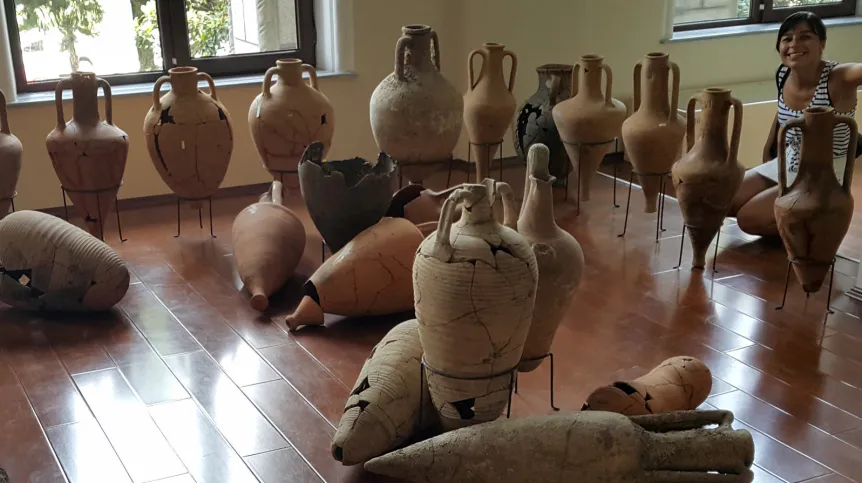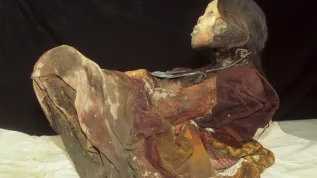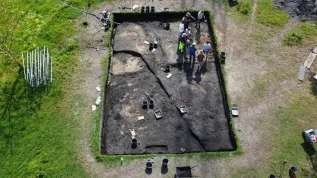
Italy has been famous for its fine wine for hundreds of years. Despite this, already more than 2.5 thousand years ago, its inhabitants imported beverage all the way from Greece. Dr. Paulina Komar, doctoral graduate from the Institute of History at the University of Wroclaw investigates why the Romans, despite having a number of their own vineyards, imported wine from the eastern edges of the Mediterranean.
Adult Roman consumed an average of a litre of wine a day, which means that the production and distribution of the beverage were important elements of the ancient economy. The topic of wine consumption in the Republic and the Roman Empire has attracted considerable interest for years. So far, however, little attention has been devoted to wines imported from the territory of Greece. Dr. Paulina Komar decided to fill this gap. For her project entitled "Greek wines in ancient Italy: consumption, distribution, and social and economic aspects" she received funding from the National Science Centre in the competition FUGA. She will conduct research at the Institute of Archaeology of the Jagiellonian University.
"I proposed an interdisciplinary approach to the subject. I would like to look at all possible sources on Greek wine consumption in ancient Italy" - she said.
Firstly, the researcher will read ancient literary texts - they tell how the wine tasted, what was its colour and flavour. Secondly - she will take a close look at amphorae, ceramic containers, which in ancient times were used to transport various products, mainly wine, olive oil and fish sauces. Their shape and stamps indicate the place of manufacture of the vessels. A comparison of the percentage of Greek amphorae for wine in all ceramic containers for the transport of the drink, will allow to estimate the scale of its consumption. This will tell the researcher how much Greek wine the inhabitants of the Italian peninsula drank. In addition, inscriptions painted on the amphorae often provide information on traders and the specific characteristics of the product.
"It\'s a real treasure trove of knowledge about the people who were involved in the transport of wine. Analysis of the names of the merchants will allow to determine whether the distributors of Greek wines were Roman citizens, residents of Italy, or Greeks. In addition, it is possible to determine their social status, whether they were free-born Roman citizens, freedmen or slaves" - she added.
Dr. Komar pointed that previous studies carried out by researchers were often incomplete - researchers drew conclusions based on only one source. For example, based on the analysis of literary sources, it was found that all Greek wines imported into Rome were luxury goods, which is not true.
The researcher has proposed the hypothesis that Greek wines in Italy in ancient times and the period of the Republic (from 7th to 1st century BC) were luxury goods and a symbol of a high social status. At that time, the distribution had little economic importance. Over time, that situation changed. With the advent of the Roman Empire, imports began to grow rapidly. Greek wine began to be popular and massively consumed by the middle class.
"It seems that the role of the Aegean zone in the supply of wine for central Italy was comparable to the role of Egypt as a source of supply of corn! Simply put, you can say that the state of the Pharaohs became the granary of the emperors, and Greece - their vineyard" - explained Dr. Komar.
In the third century, however, there was a crisis in the Empire. The researcher will check how the political turbulence affected the import of wine. One of the Dr. Komar’s research objectives is to analyse the presence of Greek wine in the context of the key moments in Roman history.
PAP - Science and Scholarship in Poland
szz/ agt/ mrt/
tr. RL













